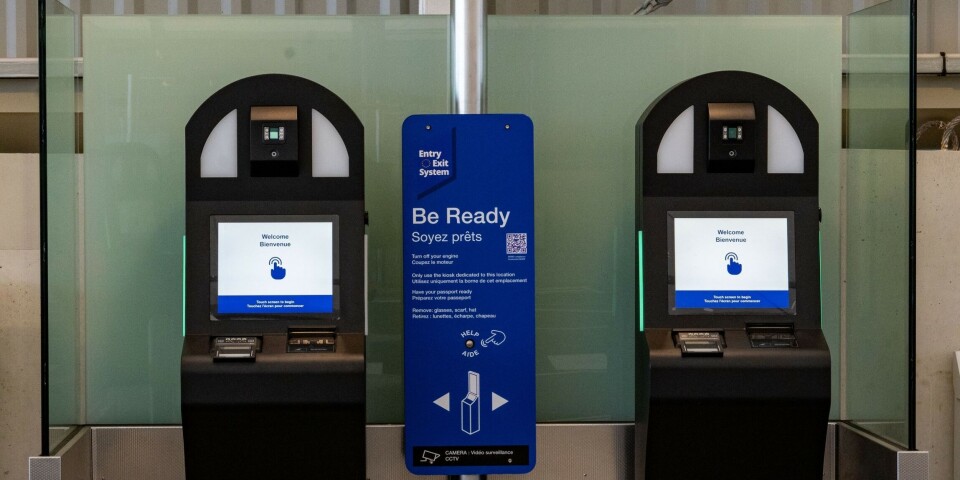-
What happens if a British person dies alone in France with no heirs or will? - Partner article
Rules can be complicated if there are assets in both countries
-
Why do pensioners get a 10% tax allowance against income in France?
The deduction is applied automatically and does not have to be claimed
-
UK probes French charges on government pensions
Some French tax offices may have wrongly applied social charges on UK government service pensions, despite international rules that normally exempt them.
Beware having too many eggs in one basket
Recently, I have focused on pension and estate planning, two very important components of financial planning in France, but a third key element is savings and investments.
When you have worked to build up your savings, it is not always easy to decide how best to look after them, especially if you are nearing retirement or already enjoying your retirement. You most likely have some or all of the following objectives:
- Protect your capital and maintain financial security
- Generate an income
- Grow the capital, but with an acceptable level of risk
- Leave a healthy inheritance to children and grandchildren
Asset allocation and diversification are key to helping you achieve these goals – in simple terms, do not put all your eggs in one basket.
Cash
Most people feel safe with cash. The money you hold on deposit in the bank does not drop suddenly based on geopolitical events, investor sentiment or a company’s misfortunes. And yes, it is important to keep some savings in cash. It is a convenient liquid asset, available when you need it (dependent on any fixed-term restrictions) and it helps balance out risk in your overall portfolio.
However, most people should not keep too much savings in cash longer-term. Inflation reduces the value of capital slowly but surely each year, and can eventually affect your standard of living. Even although inflation has been low recently, over the longer term it will cut your spending power. Plus, it is increasing and hit a four-year high in the Eurozone in February, with consumer prices 2% up on the previous year.
Looking at inflation in France (using the EU’s Harmonised Index of Consumer Prices), €100,000 would have lost a quarter of its value between 1997 and 2017.
In the UK, the drop would have been 32%.
Savers used to rely on interest to earn income from bank deposits but this has been near impossible since bank rates fell to historic lows in 2009. The future for rates is uncertain and may depend on the economy’s reaction to Brexit, France’s presidential elections and other EU developments.
Property
Investing in bricks and mortar can seem a solid investment, and indeed it is important in your overall portfolio, but remember your dream home here in France is part of your portfolio, quite possibly a large percentage.
If you buy a second or third property as an investment, this could make you very ‘overweight’ in this asset class, greatly increasing risk.
If real estate prices drop, all your properties could fall in value, while other assets may be performing well.
One significant downside with owning property as an investment is that it is very illiquid.
If you need money suddenly for any reason, it may take time to find a buyer. If you have to sell in a down market, this will affect your profits.
And, of course, with selling property it is all or nothing, even if you only need to release some of the capital.
Equities and bonds
These assets are generally a key part of a portfolio. Unlike cash they have the opportunity to grow, and unlike property they are liquid – you can generally sell at any time (unless you are holding a fund with restrictions). While the sale timing may affect profits, you do not need to wait to find a buyer so you can usually have the cash within a couple of weeks. And, generally, you only need to sell the amount you need, rather than the whole investment.
Holding a range of different investments within each asset class is vital to reduce risk. With shares and bonds it is easy to own funds which include a range of completely different companies and sectors across the world. With investment properties, however, most people can only afford to buy one or two, giving them little or no diversification.
You can also hold shares and bonds in arrangements that provide currency flexibility and tax and estate planning benefits.
For example, holding shares and bonds in an assurance-vie that offers a multi-currency feature can be very useful for UK nationals in France, particularly if you are unsure what currency to hold savings in until things settle down after Brexit. You could hold a mix of currencies, or wait to convert at a time that suits you.
An assurance-vie can also provide significant tax advantages in France, helping maximise your returns. This includes reducing succession tax and can help by-pass France’s forced heirship too. Just remember to choose your assurance-vie carefully as not all are the same, and the jurisdiction they are held in can make a difference too.
Which assets?
All this said, diversification is important to reduce risk, so you should not have all your wealth invested in shares or bonds either. You need to own a mix of assets, including cash, property, commodities etc, and avoid the temptation to be too exposed to one asset or one market – many British investors tend to hold too many investments in UK companies.
It is impossible to predict which will be the best performing assets each year – an asset can go from being the best performing one year to the worst the next, so it is essential to have a good mix and investments managers with a strong track record.
What mix is right for you should be carefully determined by your risk profile, time horizon, circumstances and objectives.
Look at the whole picture
Finally, do not review your investments in isolation. All aspects of your wealth management are interlinked. What changes you make in one may affect the other – solving a problem in one could create a problem elsewhere. The way you hold shares or property, for example, could affect your tax liabilities and how you can pass them onto your chosen beneficiaries. You need to look at the whole picture and establish solutions that provide benefits for your investment, tax, estate and retirement planning.
In short, you need to be particularly well-informed to ensure that you achieve this.
These views are put forward for consideration purposes only as the suitability of any investment is dependent on individual circumstances. Summarised tax information is based upon our understanding of current laws and practices which may change. Individuals should seek personalised advice.
This article is by Bill Blevins of Blevins Franks financial advice group who also writes for the Sunday Times on overseas finance. He is co-author of the Blevins Franks guide to Living in France
www.blevinsfranks.com
Tax rates, scope and reliefs may change. Any statements concerning taxation are based upon our understanding of current taxation laws and practices which are subject to change. Tax information has been summarised; an individual is advised to seek personalised advice.
























